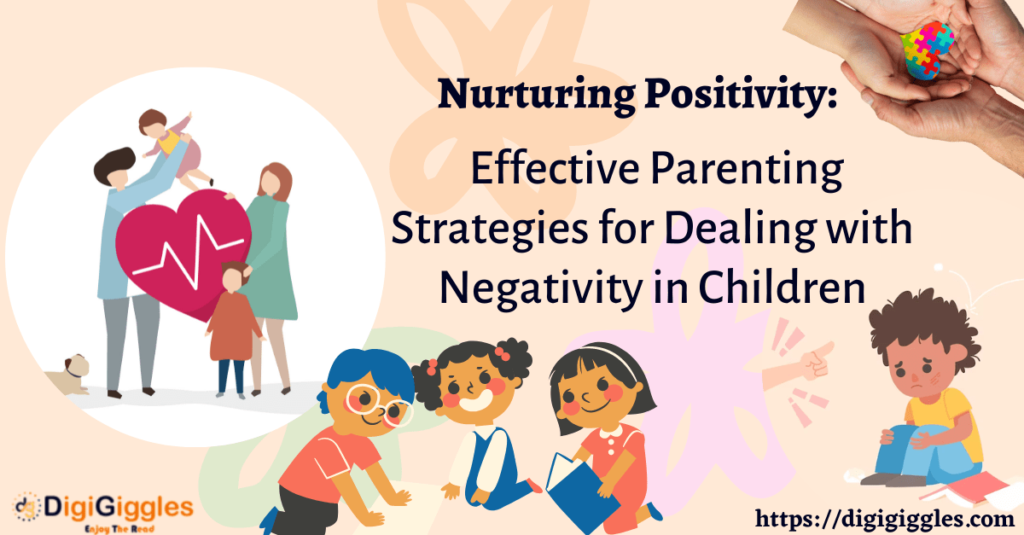Whenever we think about a child’s image; we can see happy faces all over. However; a few of them are not stay in a good mood always. Yes, we are here talking about the negative children – those who love to stay grumpy always.
From the moment we enter the world, our unique temperaments shape our outlook and responses. Some babies exude positivity, always smiling and expecting good things. Others seem to have a more negative disposition, crying and fussing frequently. Nurturing a negative baby can be challenging; as their happiness is fleeting. Understanding and accepting these differences allows parents to tailor their approach and provide the support needed for each child. Embracing the complexities of our children’s moods; we embark on a remarkable journey of parenthood, fostering their individuality and well-being along the way.
Here we will talk about some strategies that as a parent you can implement to change the negative attitude of your child and learn him to grow a positive vision to see life and enjoy the little things.
Ignore the ‘bad mood’ of your child:
When your child finds themselves in a bad mood, it’s important not to ignore them completely. Instead, focus on ignoring the mood itself. By consciously choosing not to react to their negativity; you take a significant stride in discouraging negative behaviors. It’s important to cultivate an attitude of acceptance towards your child; embracing their negative temperament alongside the positive aspects. This approach not only preserves the bond between you but also enables you to continue positively influencing their overall development.
Find Out The Actual Reason:
Understanding your child’s patterns of negative moods is a key step in fostering their emotional well-being. Pay attention to whether these moods tend to worsen in the morning or after school; as tiredness and hunger can amplify irritability in all of us. Navigating new situations is another common trigger for negative reactions. Social interactions at school and playgroups can be challenging; becoming increasingly complex as your child grows. It’s important to recognize that your child may express their desire for attention through whining; seeking a connection with you.
By addressing the underlying needs for physical well-being, structure, routine, preparing for new experiences, nurturing social development, and providing positive attention; you empower your child to gain better emotional control. They will develop the ability to moderate negative moods and navigate their emotions with greater resilience and balance. Together; let’s cultivate an environment where their emotional growth flourishes.
Oppose the Negativity of your Child:
It’s essential not to let your child’s negative behavior or constant complaining dictate the entire family atmosphere. Confront irrational statements and counterbalance them with positive perspectives on the situation. If they persist, a gentle but firm “That’s enough. I acknowledge your feelings, but…” will suffice. Continue with your activities, signaling that the discussion is closed. By setting these boundaries, you empower both yourself and your child. You teach them that excessive negativity won’t dominate the family dynamic, promoting a healthier environment for everyone involved.
Encourage Positive Behavior:
Encouraging a child with a negative temperament to exhibit positivity may seem challenging, but there are ways to help them navigate this journey. Encourage them to make positive efforts, even when their initial reaction is negative. Guide them in repairing social relationships affected by their negative attitude.
Support the development of hobbies and interests that bring them joy and help alleviate negative moods. Offer choices between two options; even if they may not be entirely satisfied with either. Shower them with affection and love as well as teach them to reciprocate these feelings. By modeling joy and gratitude; you provide a living example for your child to overcome their challenging temperament. Together, let’s nurture positive actions and empower them to embrace a more positive outlook on life.
Conclusion
If your child consistently struggles with their mood, it’s important to consult with a pediatrician to address any underlying medical or mental health concerns, such as depression. Identifying and ruling out these issues is crucial. However, it’s important to remember that some children naturally have a more negative disposition, which is normal. In such cases, focus on acknowledging and rewarding positive behavior, while actively encouraging a positive attitude. By providing attention and fostering a supportive environment, you can help your child cultivates a more optimistic outlook.
